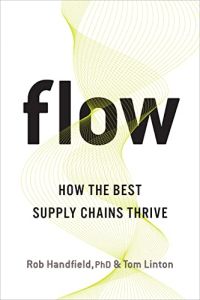To control costs in the 1990s, manufacturers set up supply networks in remote nations offering inexpensive labor. However, such facilities proved vulnerable to disruptions such as the pandemic, which created havoc leading to delays and broken supply chains. Today’s “post-globalization era” demands new supply chains that embrace data and AI. Rob Handfield and Tom Linton advise manufacturers and shippers to create supply chains that “flow” — like the flow or self-regulating motion of migrating bird flocks. Future supply chains will rely on digital monitoring and AI, which can enable them to detect and respond to snags nearly autonomously before glitches become crises.
An efficient supply chain has “flow.”
“Flow” describes the efficient movement of self-regulating natural systems such as rivers, migrating flocks of birds and the course of blood through the body. In a river, flowing water shifts its track to circumvent obstacles — such as rocks or changes in elevation — by always following the path of least resistance. A river’s track may eventually change, but that gradual transformation is the result of many small adjustments.
Water’s self-regulating systems exemplify the operation of an efficient supply chain. Rather than impose control over a supply chain, managers should build a supply “ecosystem” in which, as with the flow of a river, the movement of goods naturally finds and follows the most efficient path.
In a supply chain, flow describes the movement of goods and the obstacles they encounter, including disruptive natural, political or economic events, such as the COVID-19 pandemic, the United States-China trade war and Brexit. A business that uses digital technologies can monitor the flow of its supply lines and respond to disruptions ...
Rob Handfield, executive director of the Supply Chain Resource Cooperative, is the Bank of America Distinguished Professor of Supply Chain Management at North Carolina State University. Tom Linton is a senior advisor at McKinsey and Company.
















Comment on this summary